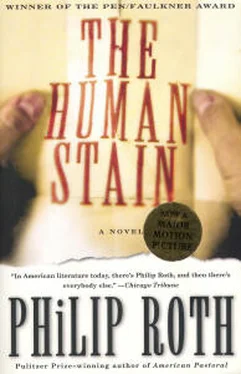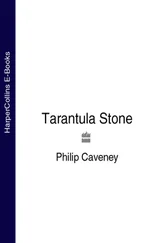By now, two years down the line, he felt himself besieged not so much by them —apart from Delphine Roux, who at Athena cared any longer about Coleman Silk and the spooks incident?—as by weariness with his own barely submerged, easily galvanized bitterness; down in the streets of Athena, he now felt (to begin with) a greater aversion to himself than to those who, out of indifference or cowardice or ambition, had failed to mount the slightest protest in his behalf. Educated people with Ph.D.s, people he had himself hired because he believed that they were capable of thinking reasonably and independently, had turned out to have no inclination to weigh the preposterous evidence against him and reach an appropriate conclusion. Racist: at Athena College, suddenly the most emotionally charged epithet you could be stuck with, and to that emotionalism (and to fear for their personnel files and future promotions) his entire faculty had succumbed. “Racist” spoken with the official-sounding resonance, and every last potential ally had scurried for cover.
Walk up to the campus? It was summer. School was out. After nearly four decades at Athena, after all that had been destroyed and lost, after all that he had gone through to get there, why not? First “spooks,” now “lily-white”—who knows what repellent deficiency will be revealed with the next faintly antiquated locution, the next idiom almost charmingly out of time that comes flying from his mouth? How one is revealed or undone by the perfect word. What burns away the camouflage and the covering and the concealment? This, the right word uttered spontaneously, without one's even having to think.
“For the thousandth time: I said spooks because I meant spooks. My father was a saloon keeper, but he insisted on precision in my language, and I have kept the faith with him. Words have meanings — with only a seventh-grade education, even my father knew that much. Back of the bar, he kept two things to help settle arguments among his patrons: a blackjack and a dictionary. My best friend, he told me, the dictionary — and so it is for me today. Because if we look in the dictionary, what do we find as the first meaning of ‘spook’? The primary meaning. ‘1. Informal. a ghost; specter.’” “But Dean Silk, that is not the way it was taken. Let me read to you the second dictionary meaning. ‘2. Disparaging. A Negro.’ That's the way it was taken — and you can see the logic of that as well: Does anybody know them, or are they blacks whom you don't know?” “Sir, if my intention was to say, ‘Does anybody know them, or do you not know them because they are black?’ that is what I would have said. ‘Does anybody know them, or do none of you know them because these happen to be two black students? Does anybody know them, or are they blacks whom nobody knows?’ If I had meant that, I would have said it just like that. But how could I know they were black students if I had never laid eyes on them and, other than their names, had no knowledge of them? What I did know, indisputably, was that they were invisible students — and the word for invisible, for a ghost, for a specter, is the word that I used in its primary meaning: spook. Look at the adjective ‘spooky,’ which is the next dictionary entry after ‘spook.’ Spooky. A word we all remember from childhood, and what does it mean? According to the unabridged dictionary: ‘ Informal. 1. like or befitting a spook or ghost; suggestive of spooks. 2. eerie; scary. 3. (esp. of horses) nervous; skittish.’ Especially of horses. Now, would anyone care to suggest that my two students were being characterized by me as horses as well? No? But why not? While you're at it, why not that, too?”
One last look at Athena, and then let the disgrace be complete.
Silky. Silky Silk. The name by which he had not been known for over fifty years, and yet he all but expected to hear someone shouting, “Hey, Silky!” as though he were back in East Orange, walking up Central Avenue after school — instead of crossing Athena's Town Street and, for the first time since his resignation, starting up the hill to the campus — walking up Central Avenue with his sister, Ernestine, listening to that crazy story she had to tell about what she'd overheard the evening before when Dr. Fensterman, the Jewish doctor, the big surgeon from Mom's hospital down in Newark, had come to call on their parents. While Coleman had been at the gym working out with the track team, Ernestine was home in the kitchen doing her homework and from there could hear Dr. Fensterman, seated in the living room with Mom and Dad, explaining why it was of the utmost importance to him and Mrs. Fensterman that their son Bertram graduate as class valedictorian. As the Silks knew, it was now Coleman who was first in their class, with Bert second, though behind Coleman by a single grade. The one B that Bert had received on his report card the previous term, a B in physics that by all rights should have been an A — that B was all that was separating the top two students in the senior class. Dr. Fensterman explained to Mr. and Mrs. Silk that Bert wanted to follow his father into medicine, but that to do so it was essential for him to have a perfect record, and not merely perfect in college but extraordinary going back to kindergarten. Perhaps the Silks were not aware of the discriminatory quotas that were designed to keep Jews out of medical school, especially the medical schools at Harvard and Yale, where Dr. and Mrs. Fensterman were confident that, were Bert given the opportunity, he could emerge as the brightest of the brightest. Because of the tiny Jewish quotas in most medical schools, Dr. Fensterman had had himself to go down to Alabama for his schooling, and there he'd seen at first hand all that colored people have to strive against. Dr. Fensterman knew that prejudice in academic institutions against colored students was far worse than it was against Jews. He knew the kind of obstacles that the Silks themselves had had to overcome to achieve all that distinguished them as a model Negro family. He knew the tribulations that Mr. Silk had had to endure ever since the optical shop went bankrupt in the Depression. He knew that Mr. Silk was, like himself, a college graduate, and he knew that in working for the railroad as a steward—“That's what he called a waiter, Coleman, a ‘steward’”—he was employed at a level in no way commensurate with his professional training. Mrs. Silk he of course knew from the hospital. In Dr. Fensterman's estimation, there was no finer nurse on the hospital staff, no nurse more intelligent, knowledgeable, reliable, or capable than Mrs. Silk — and that included the nursing supervisor herself. In his estimation, Gladys Silk should long ago have been appointed the head nurse on the medical-surgical floor; one of the promises that Dr. Fensterman wanted to make to the Silks was that he was prepared to do everything he could with the chief of staff to procure that very position for Mrs. Silk upon the retirement of Mrs. Noonan, the current medical-surgical head nurse. Moreover, he was prepared to assist the Silks with an interest-free, nonreturnable “loan” of three thousand dollars, payable in a lump sum when Coleman would be off to college and the family was sure to be incurring additional expenses. And in exchange he asked not so much as they might think. As salutatorian, Coleman would still be the highest-ranking colored student in the 1944 graduating class, not to mention the highest-ranking colored student ever to graduate E. O. With his grade average, Coleman would more than likely be the highest-ranking colored student in the county, even in the state, and his having finished high school as salutatorian rather than as valedictorian would make no difference whatsoever when he enrolled at Howard University. The chances were negligible of his suffering the slightest hardship with a ranking like that. Coleman would lose nothing, while the Silks would have three thousand dollars to put toward the children's college expenses; in addition, with Dr. Fensterman's support and backing, Gladys Silk could very well rise, in just a few years, to become the first colored head nurse on any floor of any hospital in the city of Newark. And from Coleman nothing more was required than his choosing his two weakest subjects and, instead of getting As on the final exams, getting B's. It would then be up to Bert to get an A in all his subjects — doing that would constitute holding up his end of the bargain. And should Bert let everyone down by not working hard enough to get all those As, then the two boys would finish in a flat-footed tie — or Coleman could even emerge as valedictorian, and Dr. Fensterman would still make good on his promises. Needless to say, the arrangement would be kept confidential by everyone involved.
Читать дальше












